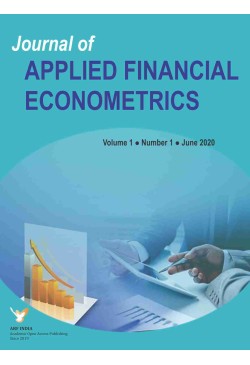The study examined the nexus between economic performance and profitability of banks in Nigeria using annual panel data spanning the period of 2005 – 2017. Specifically, it examined the relationships between macroeconomic variables and bank profitability in Nigeria; the magnitude of impact between traditional and alternative measures of economic performance on bank profitability measures in Nigeria. The study employed the fixed effect panel regression technique and the panel Granger causality test to achieve the objectives. Findings revealed that there exists a weak correlation between macroeconomic variables and bank profitability. It was equally found out that a unicausal relationship exists between foreign direct investment net inflow growth rate (FDIG) and Return on Assets (ROA), ROA and inflation rate (INF). Also, it was found that interest rate (IR) had a significant impact on return on asset, whereas operational efficiency (OPE) and EXR were found to be negatively related to return on asset. Capital adequacy ratio (CAD) was also found to be significant and positively related to ROA. Based on the size of the coefficients, FDIG, OPE andIR was found to exert more impact on bank profitability in Nigeria, than the alternative measure (MCAPG) and other traditional measures of economic performance. Thus, based on the findings it was recommended that government through fiscal and monetary policy measures should ensure that FDI driven policies are pursed and optimal interest rate that is appealing to both lenders and borrowers implemented.
Keywords: Economic Performance; Market Capitalization; Fixed effect panel regression.
JEL Classification: C21, C23, E02, G21
Paul A. Orebiyi & Gabriel Efe Otolorin (2021). Bank Profitability and Economic Performance Nexus in Nigeria: A Panel Analysis. Journal of Applied Financial Econometrics, Vol. 2, No. 2, pp. 101-119.
